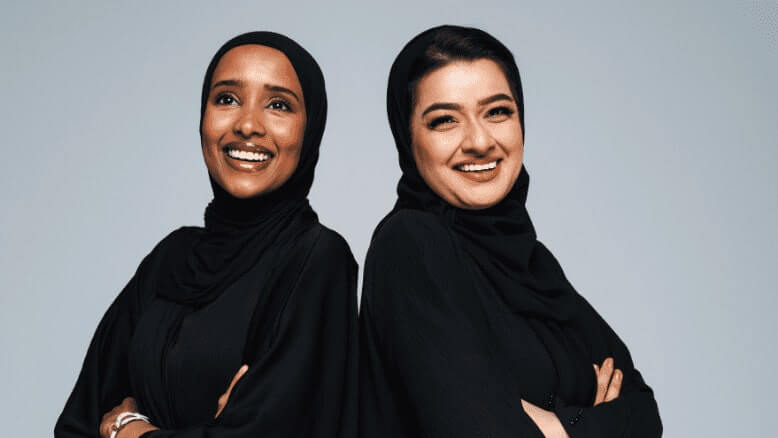UAE is making Abayas go Sustainable

UAE is making Abayas go Sustainable
In a land known for its opulence and architectural marvels, a new wave of Eco-consciousness is sweeping across the United Arab Emirates (UAE). The UAE, with its towering skyscrapers and luxurious lifestyle, is embracing a more sustainable and environmentally responsible future. This transformation is evident in the innovative initiatives that are turning plastic bottles into stylish clothing and crafting biodegradable Abayas, a traditional attire worn by many Emirati women.
A Sustainable Vision for the Future
Deeply embedded in the UAE’s long-term vision is a strong commitment to being eco-friendly, especially when it comes to managing waste. The goal is pretty ambitious: cut down on carbon emissions, protect nature, and encourage practices that use sustainable energy. And guess what? The fashion industry is taking the lead in making this happen, making it a crucial part of the UAE’s promise to take care of the climate.
Now, when we talk about sustainable fashion in the UAE, here’s something really cool – they’re turning used plastic bottles into clothes. It isn’t just about helping the environment; it’s also a bold fashion move. Big brands are jumping on board, making the UAE a trendsetter in turning piles of plastic waste into stylish clothing.
But that’s not all. The UAE’s sustainable fashion scene also loves materials that can easily go back to nature, like bamboo, organic cotton, and Tencel. These are the good-for-the-environment fabrics used to make traditional Abayas. So, not only are these clothes comfy and breathable, but they’re also a way of saying, “Hey, we care about the planet.”. In the UAE, they’re not just making clothes; they’re telling a story of style that goes hand in hand with taking care of our world.
Sustainable Local Excellence
DGrade: This Dubai-based company specializes in transforming millions of discarded plastic bottles into high-quality yarn. The process involves collecting, sorting, washing, and shredding plastic bottles into small flakes. These flakes are then melted and spun into threads, which are woven into soft, breathable, and sturdy fabrics. DGrade’s recycled polyester is used to create a range of clothing, including Abayas, T-shirts, jackets, and hats.
Al Amira Fashion: Another Dubai-based brand, Al Amira Fashion, specializes in sustainable Abayas crafted from bamboo, organic cotton, and Tencel. These Abayas offer breathability, moisture-wicking properties, and a silky touch. They are wrinkle-resistant and easy to maintain. The organic cotton used in their production is farmed without the use of pesticides or herbicides, while Tencel Abayas are created from sustainable wood pulp.
Fashion made from recycled plastic bottles and biodegradable materials brings several environmental benefits. First and foremost, it significantly reduces plastic waste, thereby conserving natural resources. Additionally, it plays a role in reducing greenhouse gas emissions. DGrade, for instance, has contributed to recycling an impressive 60 million plastic bottles since its inception, leading to a substantial reduction in global plastic waste.
Sustainable Abayas from Al Amira Fashion also contribute to environmental preservation. Bamboo Abayas save water and reduce the need for pesticides. Organic cotton Abayas help conserve water and eliminate the use of pesticides, while Tencel Abayas play a role in minimizing deforestation.
COP28: A Global Stage for Environmental Action
In November 2023, Dubai, UAE, will host the 28th Conference of the Parties (COP28) to the United Nations Framework Convention on Climate Change (UNFCCC). COP28 is a crucial global event where world leaders converge to address climate change and formulate strategies to reduce greenhouse gas emissions.
Sustainable fashion stands as a prime example of the UAE’s environmental efforts, aligning with the Dubai Fashion & Design Council’s Sustainability Program and other government initiatives. These efforts not only support sustainability in fashion but also contribute to a larger global movement towards a greener and more responsible fashion industry.
Inspiring an Eco-Conscious future with Style
The journey towards sustainable fashion in the UAE has only just begun. The future holds promise, with potential collaborations with international brands, ongoing research into eco-friendly materials, and educational efforts aimed at raising awareness about responsible fashion practices. With the world’s eyes on the UAE, this nation is poised to inspire a global shift towards Eco-conscious and sustainable fashion.
In a region renowned for luxury and extravagance, the UAE is boldly embracing a more sustainable path, symbolized by the transformation of discarded plastic bottles into garments and the creation of biodegradable Abayas. As the world gears up for COP28, the UAE positions itself as a champion of sustainable living and climate responsibility.
Moglix, an Asia-based B2B commerce startup, is playing a pivotal role in the UAE’s sustainable economic landscape. The company is aligned with the UAE’s vision for a greener future by assisting SMEs and major organizations in digitizing their procurement processes. Learn more about how Moglix is at the forefront of promoting sustainability in procurement, aligning perfectly with the UAE’s journey towards a more sustainable future.
Transforming UAE’s Supply Chains for Sustainability and Transparency!

Transforming UAE’s Supply Chains for Sustainability and Transparency!
The UAE, like many other geographies, faces challenges in ensuring traceability and accountability in supply chains. Complex global networks, limited visibility, and reliance on manual processes hinder accurate data capture and verification. Recently though, the focus on sustainable practices and transparency in supply chains has gained significant momentum. Consumers and businesses in the UAE are increasingly conscious and concerned of the origin and environmental impact of products. To address these concerns and foster a greener economy, the UAE is increasingly focusing on blockchain as a technology to revolutionize traceability and accountability in its supply chains. Blockchain has the potential to play a pivotal role in driving sustainability and enhancing trust in the UAE’s supply chain ecosystem.
The energy sector stands is a prime example of an industry where blockchain can exert significant influence. With the potential for energy plants to cause irreparable harm, this highly regulated sector operates under intricate global and regional procedures, all while striving for sustainability. Global blockchain in energy market is projected to reach $1,564M by 2026 with a CAGR of 37.6%, as per Fortune Business Insights. The growing adoption of blockchain technology in the energy sector addresses regulatory compliance, sustainability, and process efficiency. This market growth signifies the transformative potential of blockchain in revolutionizing the energy industry for a sustainable future. By integrating blockchain technology, the energy sector effectively addresses these challenges, accelerating industry processes while ensuring compliance and environmental responsibility.
These changes are not just visible and confined to an industry. The UAE has witnessed remarkable implementations of blockchain-enabled traceability. For example, the Dubai Blockchain Food Safety Project leverages blockchain to enhance food safety by ensuring end-to-end traceability of food products. Similarly, the Emirates Authority for Standardization and Metrology (ESMA) collaborates with blockchain companies to authenticate halal products, fostering transparency and meeting Islamic dietary requirements.
Benefits of Blockchain-Enabled Traceability
The application of blockchain in supply chain management offers numerous advantages, including increased transparency, improved efficiency, enhanced traceability, and strengthened customer relationships. It also contributes to a better brand image and higher return on investment for businesses.
- Real-time tracking: Blockchain enables transparency and decentralization, allowing real-time tracking of activities in the supply chain, leading to increased transparency in industries like manufacturing and fashion.
- Faster processing: By replacing intermediaries and eliminating paper-based processes with smart contracts, blockchain reduces operational time and improves efficiency, especially in lower supply tiers and the shipping industry.
- Strengthening traceability: Blockchain technology enhances traceability in the supply chain, addressing demands and regulations for provenance information. It mitigates quality-related issues, such as reputational damage, recalls, and revenue loss due to counterfeit or unauthorized products.
- Healthy customer relationships: Blockchain empowers consumers to access detailed product information and track orders transparently, fostering trust and improving customer experience.
- Higher ROI: Blockchain helps businesses build a strong brand image in the decentralized market, leading to increased return on investment.
- Effective tradeability: Blockchain facilitates efficient licensing and ownership by utilizing smart contracts and maintaining consensus, ensuring accurate tracking of ownership records.
Overcoming Challenges and Adoption Considerations
While blockchain offers immense potential, challenges such as scalability and interoperability need to be addressed for widespread adoption in the UAE. Collaborative efforts among industry stakeholders, government support, and the development of regulatory frameworks are pivotal in overcoming these obstacles. The UAE Government issued Cabinet Resolution No.111 of 2022, which became effective on January 14, 2023. This resolution aims to regulate virtual asset-related activities by providing guidelines for entities engaged in such activities. The purpose is to ensure that these entities obtain the necessary licensing and approvals from Financial Regulators or their delegates. The UAE government has been pushing the envelope on blockchain and digital assests from last decade. The Emirates Blockchain Strategy was introduced by the UAE government in April 2018. Its objective is to leverage blockchain technology in order to migrate 50% of government transactions onto the blockchain platform by 2021. The strategy encompasses various initiatives that target improved efficiency, cost reduction, and enhanced customer experience.
Future Outlook
The future of sustainable supply chains in the UAE is intertwined with blockchain technology. As the UAE continues to prioritize environmental sustainability, blockchain’s integration with emerging technologies like the Internet of Things (IoT) and artificial intelligence (AI) will further enhance supply chain transparency and efficiency. For technologies to cross hands data will have to play a crucial role since AI relies heavily on data, hence data sanity will be of utmost importance. Moglix has been working with organisations in the UAE to sort their data challenges and transform their procurement value chain at a rapid yet sustainable pace
Embracing blockchain enables the UAE to solidify its position as a global leader in sustainable practices and reinforces its commitment to a greener future. The UAE’s commitment to revolutionizing supply chain traceability and accountability through blockchain technology demonstrates its dedication to sustainability and transparency. By leveraging blockchain, the UAE is building a robust and trustworthy supply chain ecosystem that aligns with consumer expectations, protects the environment, and drives the nation’s sustainable development goals.

